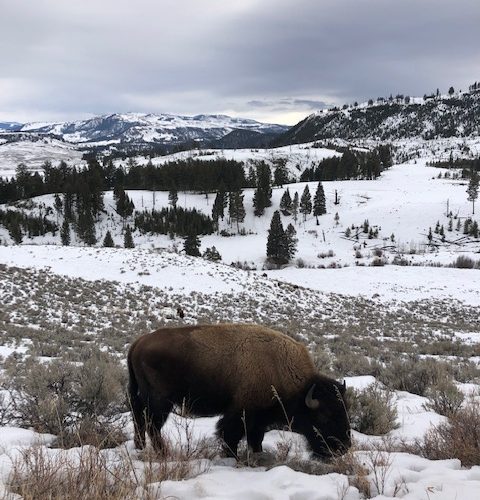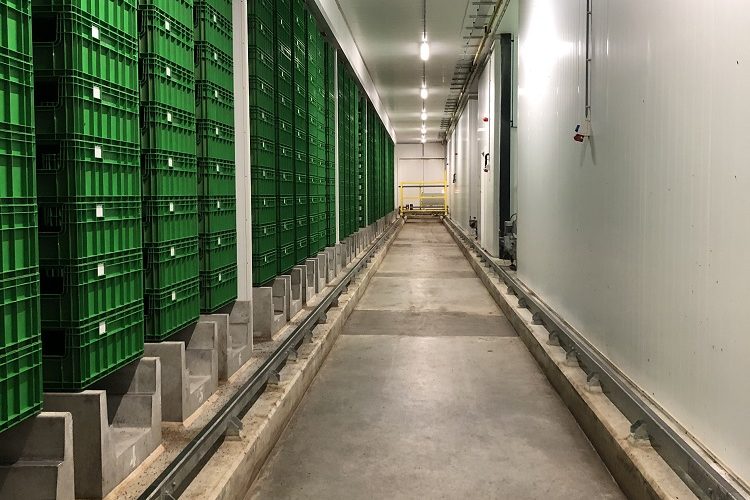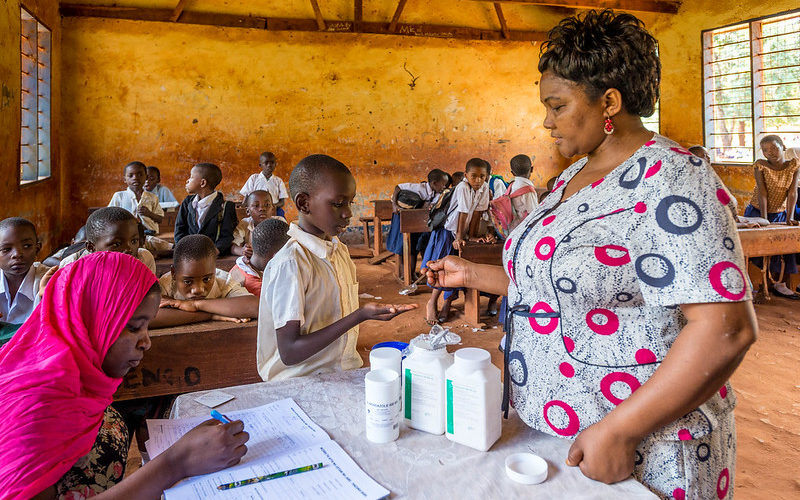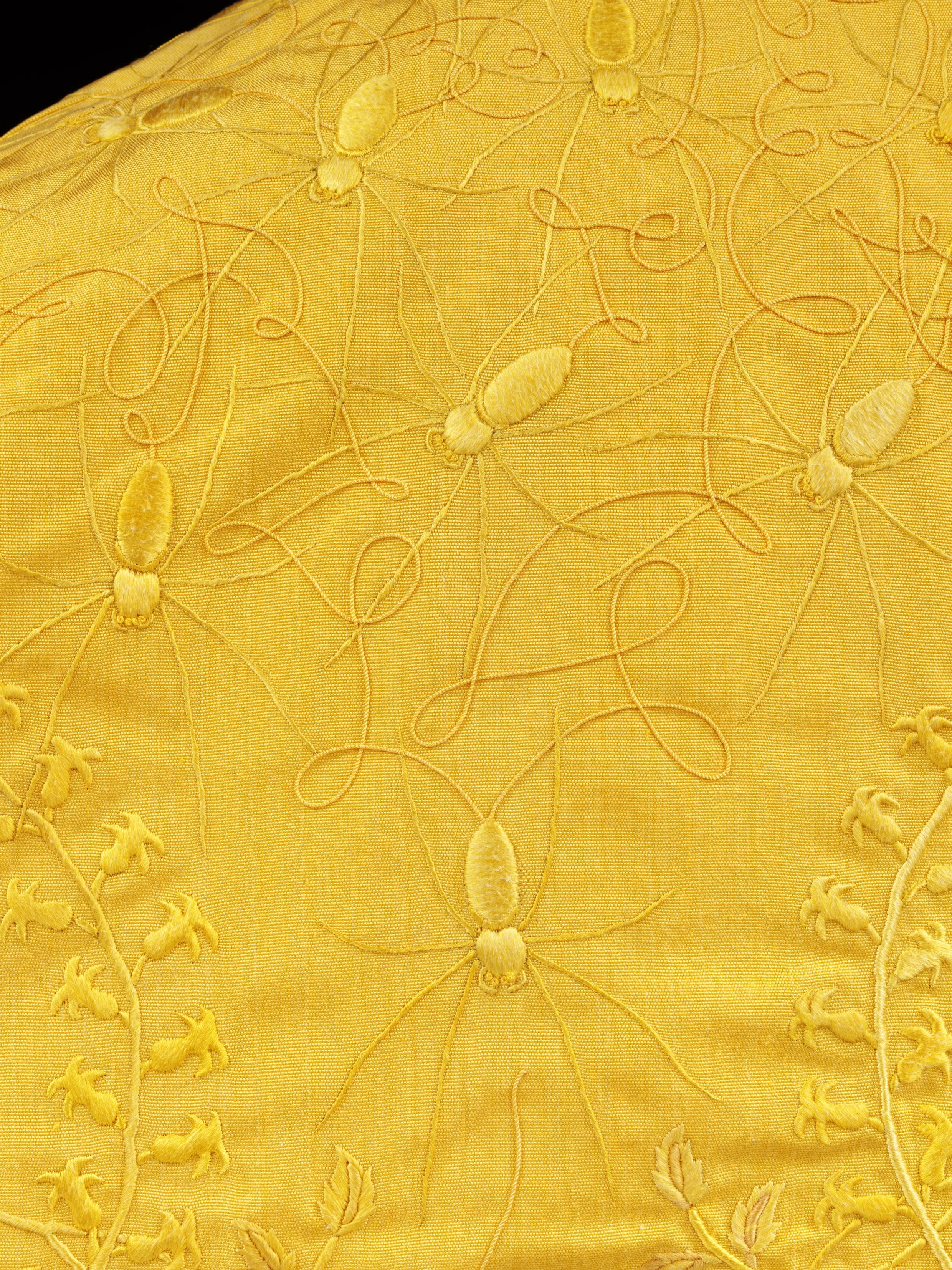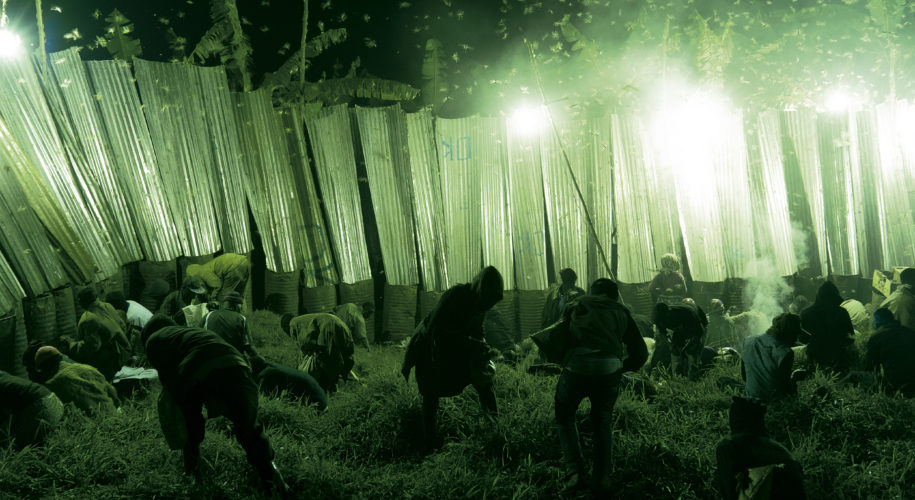
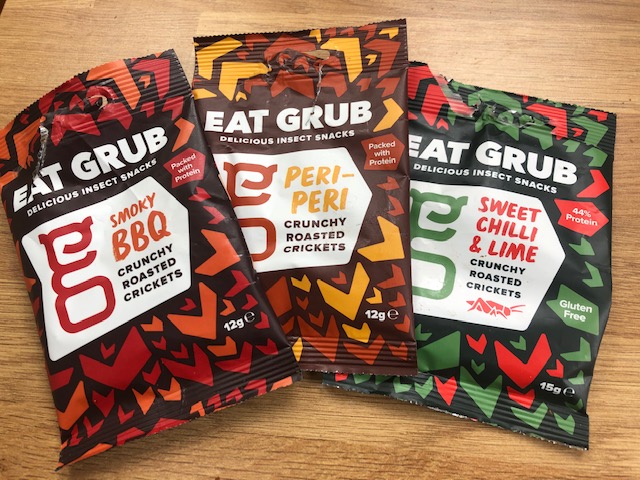
Coming soon to a table near you
Edible insects and lab-grown meat are on the menu. Although two billion people around the world regularly eat insects, consumers in the West have historically shunned them as a food source. But concerns about the environmental impact of food production are putting insects on the menu: they are rich in protein and more sustainable to produce than meats such as beef or pork. I predicted … Continue reading Coming soon to a table near you
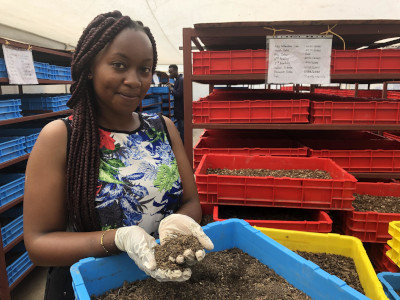
Kenya Shakes Up Farming with Insect Feed
Kenya Shakes Up Farming with Insect Feed. A new generation of agricultural entrepreneurs in Kenya are using the larvae of black soldier flies as a sustainable alternative to fishmeal and soy. Could it take off internationally? Read the full story here. Published on DW.com on 30 July 2020. Photo ©Emilie Filou Continue reading Kenya Shakes Up Farming with Insect Feed
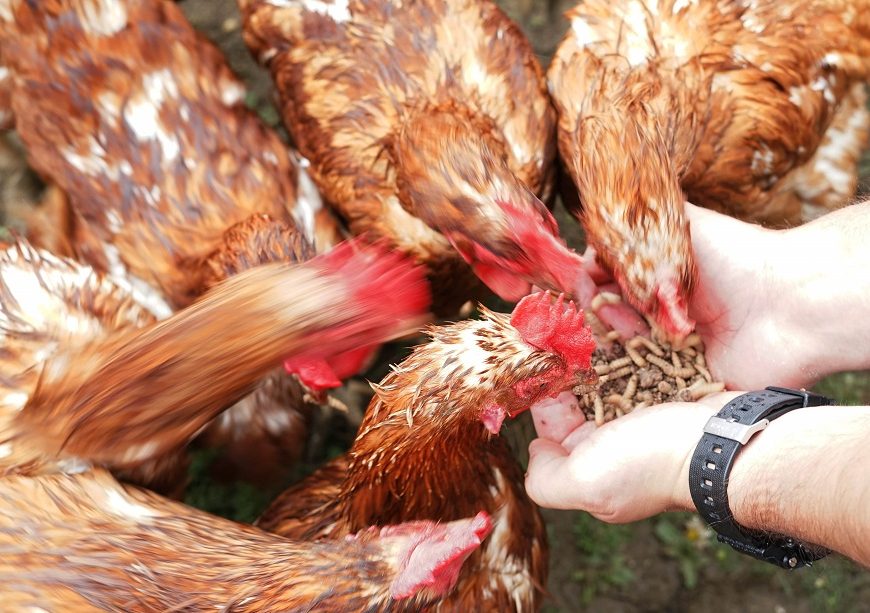
The Insect Solution to Soy
The Insect Solution to Soy Insects could help reduce reliance on environmentally damaging proteins in animal feed, such as fishmeal and soya beans. A fifth of the world’s wild fish catch is currently used to make fishmeal, which is contributing to overfishing in certain areas, while soya production is wreaking havoc in the forests of South America. Insect entrepreneurs have plenty of ideas on how … Continue reading The Insect Solution to Soy
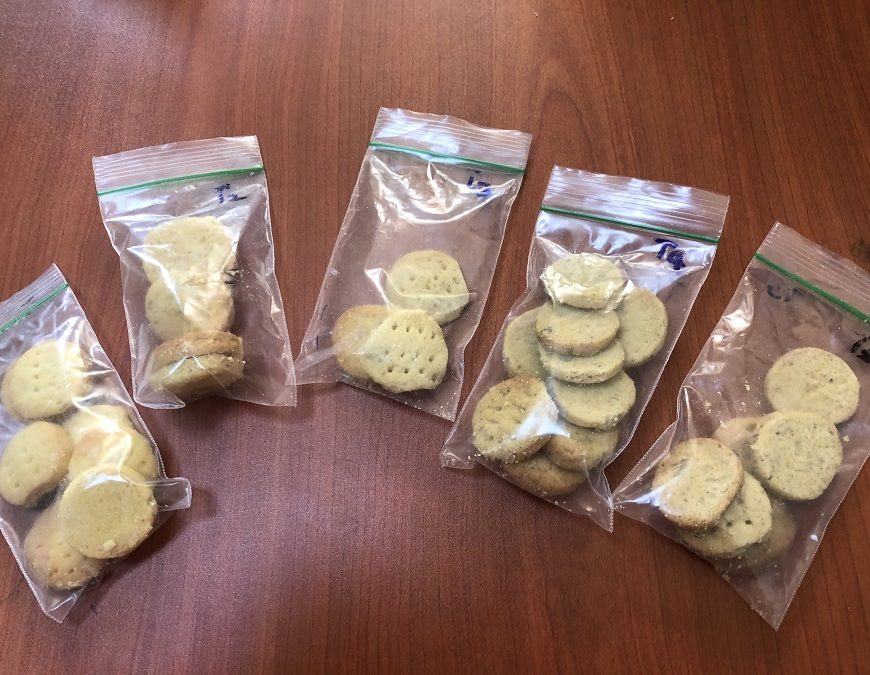
A Biscuit With Extra (Insect) Crunch
A Biscuit with Extra (Insect) Crunch Insects are traditional food in many African countries but young people and urban dwellers aren’t so keen on this traditional fare so the International Center for Insect Physiology and Ecology (ICIPE) is trying to give it a modern twist. Listen to the story here. Broadcast on BBC Radio 4 From Our Own Correspondent on 20 June 2020. Photo ©Emilie … Continue reading A Biscuit With Extra (Insect) Crunch
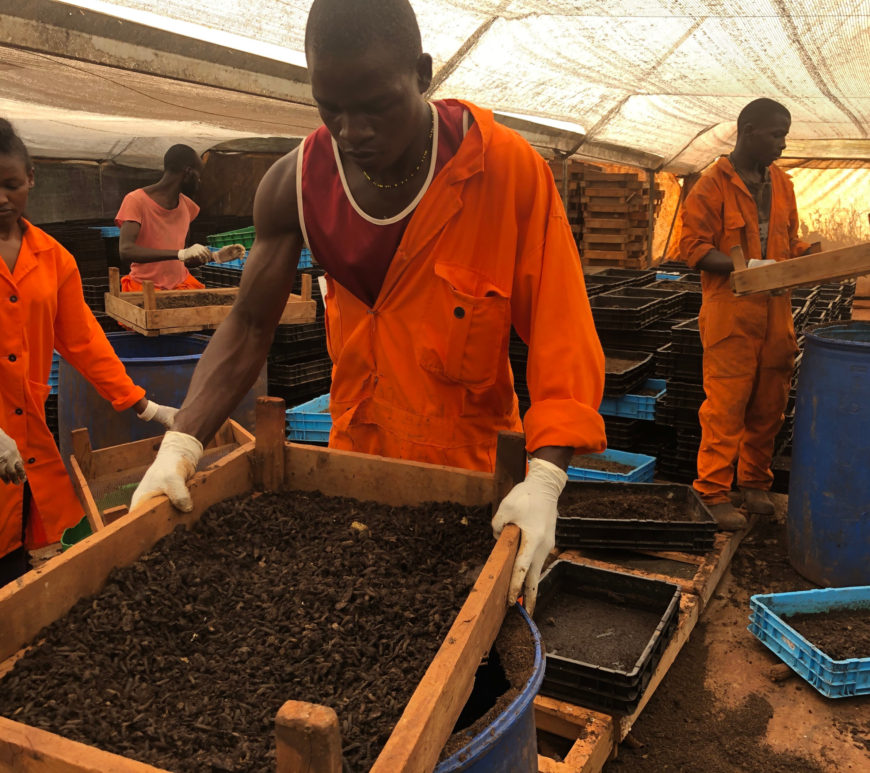
Move over fishmeal, here come the insects
Move over fishmeal, here come the insects Fishmeal and fish oil, widely used in animal feed, deplete fish stocks for human consumptions and marine predators. Animal feed manufacturers around the world are therefore looking for alternative sources of protein; insects and bacteria are amongst the most promising and production is starting to take off. Read the story here. Published in Mongabay on 24 April 2020. … Continue reading Move over fishmeal, here come the insects
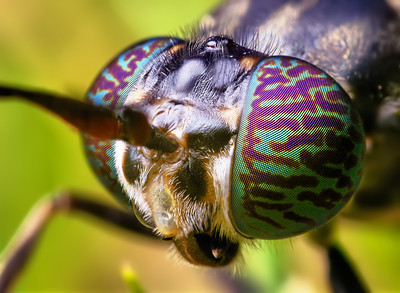
Buzzing about insect farming
Buzzing about insect farming Growing demand for fishmeal and soy in animal feed has been disastrous for the environment. Could the black soldier fly and other insects be sustainably used in husbandry and aquaculture instead of plants? Read the story here. Published in The Correspondent on 20 January 2020. Photo ©Thomas Shahan, Creative Commons License on Flickr Continue reading Buzzing about insect farming

Bugs for lunch
Bugs for lunch Edible insects are nutritious: they contain high levels of protein, fibre, essential vitamins and minerals. They’re also more sustainable to produce than other meats such as beef or pork. But would you eat them? I met the Welsh entrepreneurs determined to find them a place on British plates. Listen to the story here. Broadcast on BBC Radio 4 From Our Home Correspondent … Continue reading Bugs for lunch
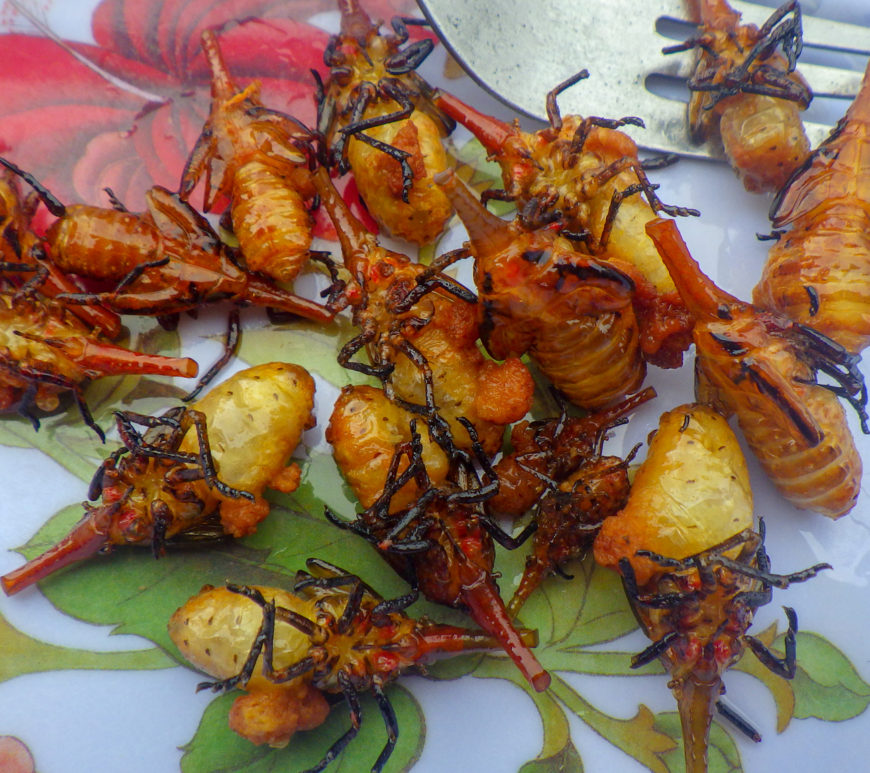
Eat the Insects, Spare the Lemurs
To solve the twin challenges of malnutrition and biodiversity loss in Madagascar, new efforts are promoting edible insects as a way to take pressure off wildlife that people hunt for meat when food is scarce. Read the full story here. Published on Mongabay, 11 July 2019. Image ©Brian Fisher, California Academy of Sciences Continue reading Eat the Insects, Spare the Lemurs
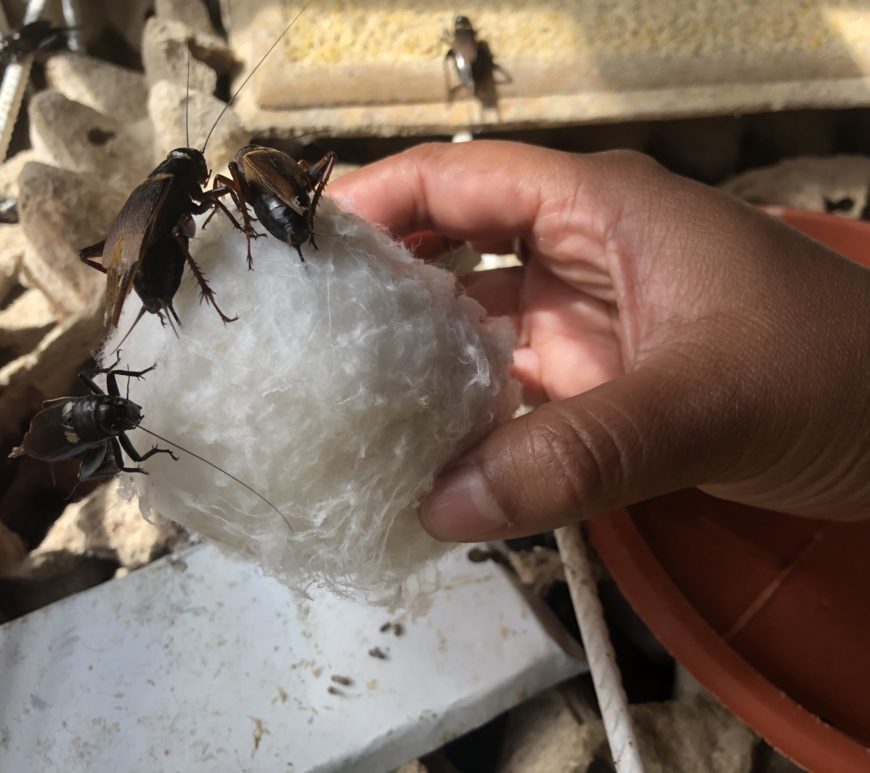
Cricket powder for malnutrition
Cricket powder for malnutriton Insects are well-known for their high protein content. In Madagascar, which has one of the highest rates of malnutrition in the world, a cricket farm is selling cricket powder to humanitarian organisations providing famine relief and free-school meals. Read the full story here. Published in The Telegraph, 24 June 2019. Continue reading Cricket powder for malnutrition
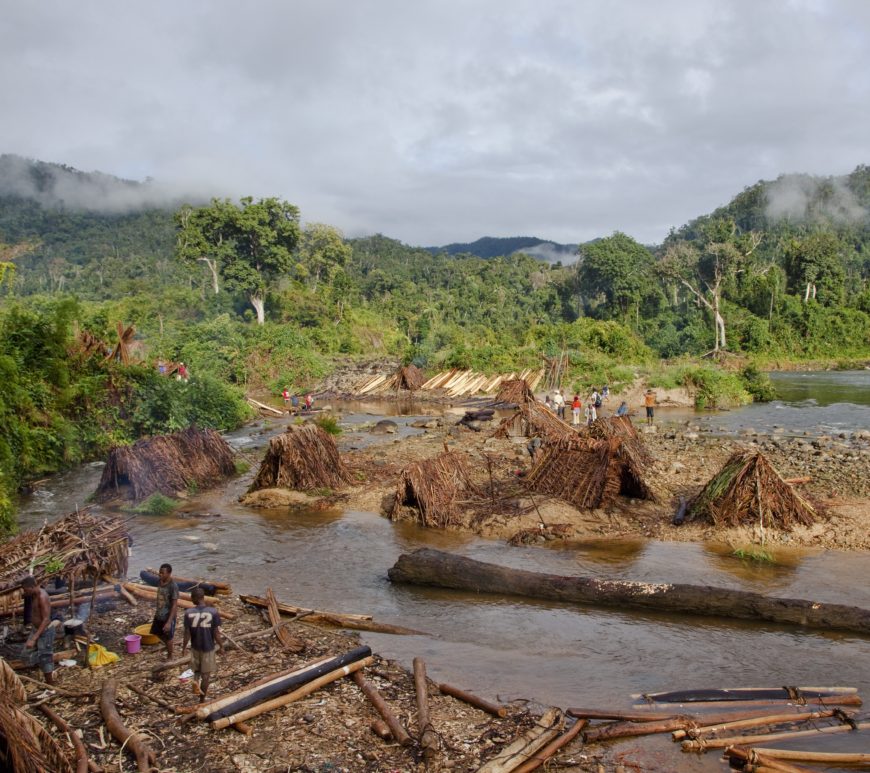
Last chance saloon for Madagascar biodiversity
Last chance saloon for Madagascar biodiversity Madagascar’s exceptional biodiversity is on the wane. The country’s new president should seize the opportunity to save it. The men lie perfectly still. Their beige and khaki gear do a good job of blending with the dusty ground; only their black, oversized cameras and lenses stick out. Every few seconds, salvos of shutter clicks reverberate around the camp, each … Continue reading Last chance saloon for Madagascar biodiversity
